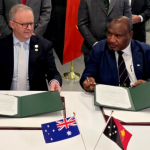In a move to prevent the imminent ban of TikTok in the United States, President Donald Trump has signed an executive order extending the deadline for its parent company, ByteDance, to sell the app’s U.S. operations to a non-Chinese buyer. This extension grants an additional 75 days beyond the previous April 5 deadline, allowing more time for negotiations and potential deals.
Background of the Situation
The Protecting Americans from Foreign Adversary Controlled Applications Act (PAFACA), enacted in April 2024, mandated that ByteDance divest TikTok’s U.S. operations by January 19, 2025, or face a nationwide ban. As the deadline approached, ByteDance did not secure a sale, leading to a temporary shutdown of TikTok services in the U.S. on January 18. However, following assurances from President-elect Trump, services were restored on January 19. Upon taking office on January 20, President Trump issued an executive order delaying the enforcement of PAFACA by 75 days to facilitate negotiations for a sale.
Recent Developments
Negotiations for the sale of TikTok’s U.S. operations have faced obstacles, particularly due to escalating trade tensions between the U.S. and China. President Trump’s announcement of new tariffs, including a 54% tariff on Chinese goods, prompted China to withdraw its approval for the deal. This led to the suspension of negotiations, as ByteDance awaited further developments in trade discussions.
Despite these challenges, several American companies have expressed interest in acquiring TikTok’s U.S. operations. Notable potential buyers include Oracle, Amazon, and a consortium led by OnlyFans founder Tim Stokely. Additionally, ad-tech company AppLovin submitted a last-minute bid to acquire TikTok’s assets outside China.
Implications and Future Outlook
The extension of the deadline reflects the complexities involved in reaching a deal that satisfies all parties, including the U.S. and Chinese governments, ByteDance, and potential buyers. President Trump has indicated a willingness to adjust tariffs as part of the negotiations, suggesting that a reduction in tariffs could facilitate the completion of a deal.
As the new deadline approaches, stakeholders remain engaged in discussions to find a resolution that addresses national security concerns while allowing TikTok to continue its operations in the U.S. The outcome of these negotiations will have significant implications for U.S.-China trade relations and the broader landscape of international technology investments.










